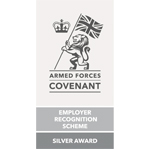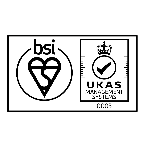LEEA offers technical advice as one of our key services.
Below is a selection of frequently asked questions (FAQs) received by our technical team with respect to the COVID-19 pandemic.
Members can login to see a full list of other FAQs.
Please Note: The content of the guidance given in these frequently asked questions is provided for general information only. Whilst they are intended to represent a standard of good practice, they have no legal status and compliance with them does not exempt you from compliance with any legal requirements. Although we make reasonable efforts to provide accurate guidance, we make no representations, warranties or guarantees, whether express or implied, that the content of the guidance given in these frequently asked questions and our interpretation of the requirements given is accurate, complete or up-to-date. It is therefore responsibility of those with specific duties under the legislation to ensure that they fulfil the obligations imposed on them.
Have a technical question that is not listed below? Check the LEEA Library or email technicaladvice@leeaint.com to see if we can help.
There have been no exemptions made under PUWER and LOLER and you must ensure that if you are using lifting equipment that it continues to be properly maintained, inspected and thoroughly examined in accordance with the legislation. Failure to do this increases the risk to safety and should not be done. For further support on how to comply with the legislation during Covid-19 contact technicaladvice@leeaint.com
Businesses are working under Government advice to implement measures to protect their workforce. However, duty holders are also advised that they cannot use lifting equipment beyond the date stated on the last report of thorough examination, as doing so increases the risk to safety.
The following options are examples of how they should proceed;
- Stop using the equipment and quarantine it until such date that it can be examined.
- Implement measures to allow a Competent Person onto site, this is allowed providing social distancing rules, 2m (6ft) between people, are followed. For example equipment could be used to a designated inspection area, removed and examined offsite, fixed installations cordoned off with restriction zones, etc.
- Hire in replacement or alternative equipment
- If the utilisation of the equipment has significantly decreased and monitoring and control measures can be implemented then take the equipment under a written scheme.
For further guidance click the following links;
https://www.gov.uk/coronavirus
https://www.hse.gov.uk/news/social-distancing-coronavirus.htm
Engineers who are working on sites where there are restrictions arising from the risk of COVID-19 infection should comply with site rules and take into account the wider Public Health England advice regarding good hygiene practices and separation distances. Consideration needs to be given to protecting the engineers but also, where relevant, any vulnerable persons who may be affected by their work.
“HSE are aware that a number of engineers/technical experts/inspectoral staff, that are involved in statutory inspection regimes and the frontline maintenance that supports such schemes, are in the process of determining if they should consider themselves eligible for consideration as ‘Key workers’.
Firstly, please note that government advice is, that to reduce the risk of spread of COVID-19, children should be kept away from schools, colleges and other educational establishments etc where possible.
The care being provided by some Schools is for children who are vulnerable and children whose parents are critical to the Covid-19 response ‘Key Workers’ and cannot be safely cared for at home.
HSE cannot give a simple industry wide answers on who is or isn’t a ‘Key Worker’ as there must be a consideration of the age and needs of the children, if an individual’s job role supports key services set out in the link below, and if they can work from home.
HSE does ask that all such businesses focus their resources and attention on supporting the services identified in the Governments advice to schools providing key worker support.”
For the thorough examination lift industry, the following applies:
Following the Government’s recent announcement that we are now in the ‘delay’ phase of the COVID-19 outbreak, the HSE is advising owners of lifting equipment and in particular engineering companies who carry out the thorough examinations and testing of lifting equipment to note the following:
- Lifting equipment for the lifting of persons is carried out every six months with a dated report issued to the lift owner. The next six-month examination should take place on or before this date, but not after.
- If no thorough examination has taken place prior to the date on the report, the lifting equipment should not be used until it has been examined by a competent person.
- However, if engineering companies, are suffering shortages in their own resources, they should consider focusing their thorough examination of lifts on premises where the most vulnerable are located such as hospitals and care homes where people may not be as able to use stairs, as opposed to shops and offices where staff maybe more able to do so.
Most premises have more than one lift so some redundancy is already built in should a lift have to be taken out of use having gone beyond its examination date until an engineer is available to visit.
There is a higher risk of lifting equipment failure should it not be examined as per the six month schedule and dutyholders are expected to take all reasonably practicable steps to make sure their equipment complies with the law. HSE will keep the situation under review and does not have any plans to issue any exemptions to LOLER requirements.
LEEA has very little data on the use of this sanitisers and if in doubt you should contact your product supplier.
We believe that most alcohol based sanitisers are a weak acid, so is unlikely to have an effect on high tensile steel products in terms of hydrogen embrittlement. However, we believe that it can weaken textiles as it takes out the moisture content of the material. The substance is also highly flammable and although it evaporates we believe it can linger on clothes and other textiles.
There are also other non-alcohol sanitisers, but the chemical makeup of these products is often unknown.
Therefore, due to the lack of data in terms of use with lifting equipment, we are taking the current position to err on the side of caution and recommend that members do not use sanitisers. The advice would be to follow HSE guidance with respect to Covid-19, which is;
- Wash hands after touching components that may have been handled by others
- Wear gloves or other suitable PPE
- Ensure social distancing.
For further questions on the above or other subjects please contact technicaladvice@leeaint.com



